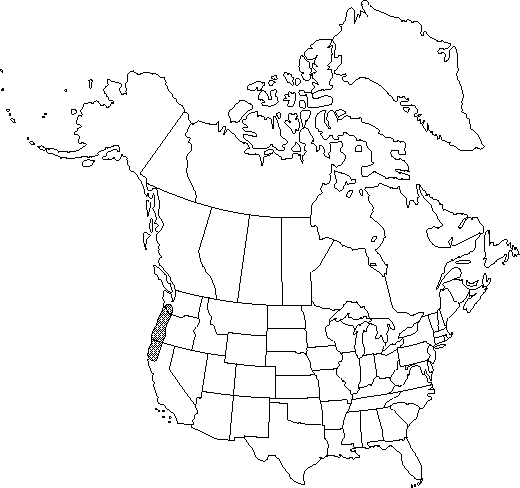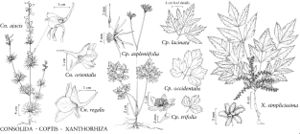Difference between revisions of "Coptis laciniata"
Bot. Gaz. 12:297. 1887.
EndemicIllustrated
Treatment appears in FNA Volume 3.
imported>Volume Importer |
imported>Volume Importer |
||
| Line 52: | Line 52: | ||
|publication year=1887 | |publication year=1887 | ||
|special status=Endemic;Illustrated | |special status=Endemic;Illustrated | ||
| − | |source xml=https:// | + | |source xml=https://bitbucket.org/aafc-mbb/fna-data-curation/src/2e0870ddd59836b60bcf96646a41e87ea5a5943a/coarse_grained_fna_xml/V3/V3_1113.xml |
|genus=Coptis | |genus=Coptis | ||
|species=Coptis laciniata | |species=Coptis laciniata | ||
Latest revision as of 21:46, 5 November 2020
Rhizomes pale brown. Leaves: blade 2-ternate or ternate with leaflets deeply 3-lobed almost to base; leaflets short- to long-petiolulate, blade ovate to triangular, incised-lobate nearly to midvein, margins sharply serrulate-denticulate. Inflorescences 2-4-flowered, often shorter than leaves at anthesis, 5-10 cm, elongating to 25 cm in fruit. Flowers nodding; sepals reflexed and ascending, linear-lanceolate, 6-11× 0.3-1 mm; petals linear-lanceolate, nectary nearly basal, blade flattened, narrowly ligulate at apex; stamens 10-25. Follicles 5-11; stipe equal to or slightly shorter than body; body oblong, 8-13.5 mm; beak recurved, less than 1mm. Seeds 2-2.5 mm.
Phenology: Flowering spring–summer.
Habitat: Moist woods, stream banks, seeps, and wet cliffs in the coastal mountains
Elevation: 500-2000 m
Distribution

Calif., Oreg., Wash.
Discussion
Selected References
None.
Lower Taxa
None.
